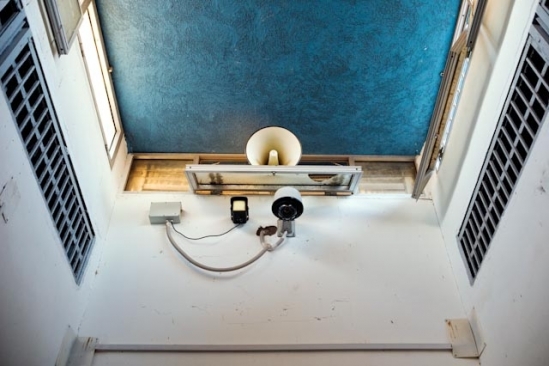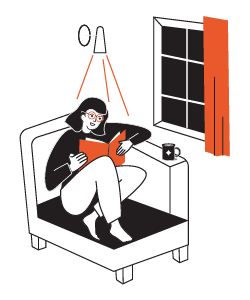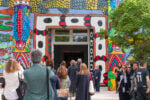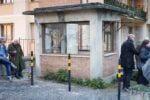Peter Püntener – If walls could talk

Prima che le rivolte della Primavera Araba si diffondessero in Libia, migliaia di prigionieri politici furono detenuti nelle prigioni di Moammar Gheddafi. Le fotografie in mostra sono state scattate poco dopo la liberazione della prigione di Abu Salim, durante i primi giorni di Settembre del 2011.
Comunicato stampa
PETER PÜNTENER
"IF WALLS COULD TALK"
PHOTOS FROM THE ABU SALIM PRISON, TRIPOLI
SEPTEMBER 9 - OCTOBER 14, 2013
OPENING: MONDAY, SEPTEMBER 9 AT 6PM
The SACI Gallery invites you to the exhibition of photographs by Swiss artist, PETER PÜNTENER.
Before the Arab Spring uprising swept through Libya, thousands of political prisoners had for many years been held in Moammar Gaddafi's prisons. Here, the halls and cells of the notorious maximum security Abu Salim prison in Tripoli are open for all to see. As the site of the terrible 1966 massacre of some 1,200 prisoners who had protested over living conditions, the symbolism of the liberation of Abu Salim prison during the uprising was particularly powerful. Indeed, it was the arrest of Fathi Terbil, a lawyer representing the families of Abu Salim’s victims that had helped spark the revolt in Libya in February 2011. Ten days after the uprising began, thousands of people arrested after demonstrations in Tripoli were packed into Abu Salim. With the wing reserved for political prisoners full, new arrivals were housed in the military wing. Arrested on suspicion of being rebels, they were made to sign a statement blindfolded – if they refused, they were tortured: tied up, hung from an overhead metal bar and beaten. The photographs were all taken shortly after rebels had liberated the Abu Salim prison in early September 2011.
Peter Püntener was born in Switzerland in 1958 and lives in Zurich. After finishing his studies in Economic History at the University of Zurich in the early 1990s, Peter Püntener attended classes at the International Center of Photography in New York City. He then returned to Switzerland, where he began a career as photojournalist. In 1995 his traveling exhibition and book, Ohne Arbeit, photographic portraits of unemployed people in Switzerland, brought him recognition as a leading Swiss photographer. In 2008 he photographed famous Swiss living in the USA. These works are now in the Photograph Collection of the Swiss National Library. For several years, he has been working on portraits of two Swiss artists, Bruno Jakob and Hans Witschi, both of whom live in New York City. Other long-term projects include The End of the Road, photographs of abandoned cars amid American landscapes, and Under the Trees of Heaven, photographs of flowers and plants in an isolated Umbrian valley. Currently, he is working on a project about the financial crisis in Europe. If walls could talk is Peter Püntener’s second work dealing with human right issues after Totenklage. This work was shown at SACI in early 2011. The photographs from Totenklage, for which Peter Püntener was nominated for the Swiss Photo Award 2009, were reproduced in AFTERWARDS, a book by the Musée de l'Elysée, Lausanne published by Thames & Hudson, London.
www.peterpuentener.ch
The SACI Gallery is open Monday-Friday, 9am-7pm, Saturday & Sunday, 1-7pm. Entrance is free.
If walls could talk (Se le mura potessero parlare)
Prima che le rivolte della Primavera Araba si diffondessero in Libia, migliaia di prigionieri politici furono detenuti nelle prigioni di Moammar Gheddafi. In queste opere, le sale e le celle della famosa prigione di massima sicurezza di Abu Salim a Tripoli possono essere osservate da tutti. In quanto luogo della terribile strage del 1966, quando furono massacrati circa 1.200 prigionieri che avevano protestato contro le proprie condizioni di vita, durante le rivolte il simbolismo dietro la liberazione di Abu Salim è stato particolarmente potente. Oltretutto, è stato l’arresto di Fathi Terbil, un avvocato che rappresentava le famiglie delle vittime di Abu Salim a rappresentare la scintilla che ha dato vita alla rivolta libica del Febbraio 2011. Dieci giorni dopo l’inizio delle proteste, migliaia di persone arrestate durante le manifestazioni a Tripoli sono state rinchiuse ad Abu Salim. Essendo l’ala riservata ai prigionieri politici ormai piena, i nuovi arrivi sono stati sistemati nell’ala militare. Arrestati in quanto sospetti ribelli, sono stati costretti a firmare una dichiarazione mentre erano bendati – in caso di rifiuto, venivano torturati: i carcerieri li appendevano ad una sbarra di ferro rialzata e li picchiavano. Le fotografie in mostra sono state scattate poco dopo la liberazione della prigione di Abu Salim, durante i primi giorni di Settembre del 2011.
Peter Püntener - Biografia
(Svizzero, nato nel 1958, vive a Zurigo)
Dopo aver completato i propri studi di Storia Economica presso l’Università di Zurigo durante i primi anni 90, Peter Püntener ha frequentato un ciclo di lezioni presso l‘International Center of Photography a New York. Quindi è tornato in Svizzera dove ha iniziato la propria carriera come fotoreporter. Nel 1995, la sua mostra itinerante ed il relativo libro, Ohne Arbeit, consistenti in ritratti di persone disoccupate in Svizzera, lo hanno portato all’attenzione pubblica come uno dei fotografi più rilevanti del paese. Nel 2008 ha fotografato una serie di celebrità svizzere trasferitesi negli Stati Uniti. Queste opere fanno ora parte della Collezione Fotografica della Biblioteca Nazionale Svizzera. Da vari anni sta lavorando sui ritratti di due artisti svizzeri, Bruno Jakob e Hans Witschi, che vivono entrambi a New York. Tra i suoi altri progetti a lungo termine troviamo The End of the Road, fotografie di macchine abbandonate in paesaggi americani, e Under the Trees of Heaven, fotografie di fiori e piante in un‘ isolata valle umbra. Al momento sta lavorando su un progetto riguardante la crisi finanziaria europea. If walls could talk è la seconda mostra di Peter Püntener riguardante i diritti umani dopo Totenklage, che è stata ospitata presso la SACI ad inizio 2011. Le fotografie di Totenklage, per cui Peter Püntener è stato nominato per il Premio Fotografico Svizzero 2009, sono state riprodotte in AFTERWARDS, un volume realizzato dal Musée de l'Elysée, Losanna, e pubblicato da Thames & Hudson, Londra.



